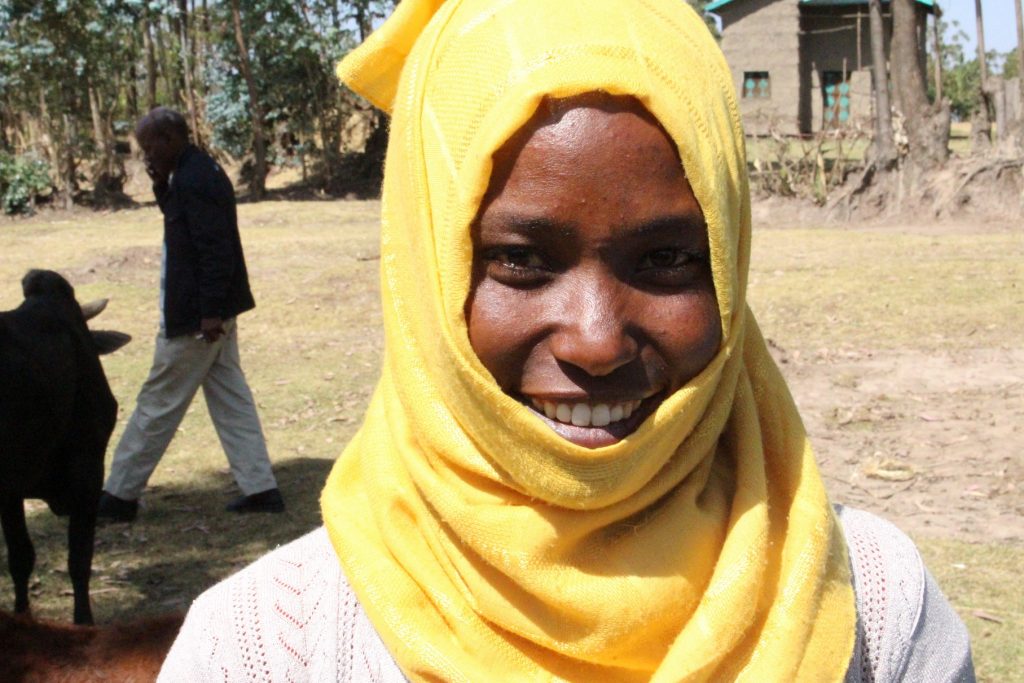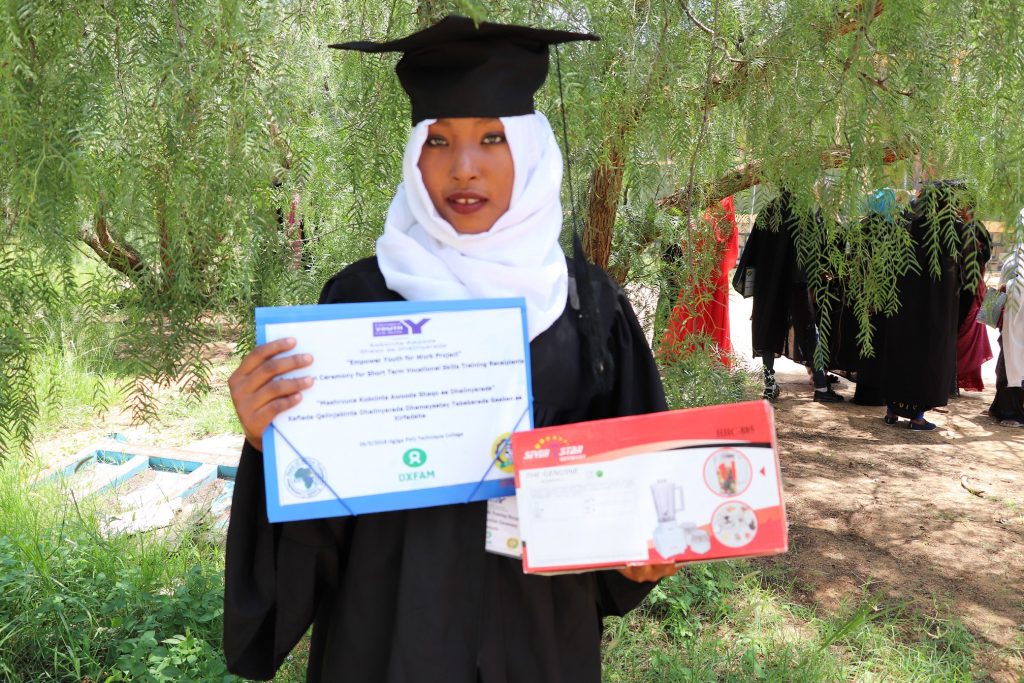Ethiopia year 2 overview
The second year of Empower Youth for Work in Ethiopia the project has focused on forming youth groups and strengthening Small and medium enterprises. In addition, the have been finalized with the relevant government agencies and trainings took place. Unpaid care work, Gender Based Violence and Sexual Reproductive Health and Rights have been addressed in radio programs and by influencing decision makers to create a better enabling environment for young people.
Key Achievements
EYW identifies and organizes youth groups and cooperatives and then provides capacity-building support. To date, 33 existing youth groups and 545 small and medium enterprises have been strengthened, and 114 new youth groups formed. 31 youth groups have been linked with microfinance institutions and received loans to start their own businesses. 1,603 young people who have received loans from the government’s Youth Revolving Fund have received technical support from EYW in business management, record keeping and entrepreneurship.
EWY has collaborated with the Ethiopian Federal Technical and Vocational Education and Training Agency (FTVETA), an autonomous government organization, to develop 5 technical, vocational and agricultural training modules. These have been distributed electronically to all TVET colleges across Ethiopia, significantly extending the project’s reach. Printed versions will be distributed to selected training institutions in the 2 regions targeted by EYW, and a total of 376 youths will receive training in year 3.

In order to create the enabling environment and the shift in social norms necessary for long-term change, the project uses a range of methods to raise awareness of unpaid care work, GBV and SRHR issues. These include reflection forums, bringing together community elders, clan and religious leaders, and local government officials to discuss gender and social norms. Weekly radio programmes have been broadcast to raise awareness and promote wider debate. To discuss existing practice and knowledge, multi-stakeholder dialogues were organized. More than 650 youth have taken part in community conversations to discuss the issues.
EYW ensure that young people participate in all aspects of implementation. For example, youth reporters have been involved in the project’s influencing strategy development, the Human Centred Design (HCD) inception workshop, research and ideation sessions as well as collecting data to develop personal stories which can be used to influence decision makers. One youth reporter has been mentored by a reporter from Fana Broadcasting Corporate (FBC) on interview techniques.
The condition of women in a nation is the real measure of its progress.
– Ngũgĩ wa Thiong’o
Innovations and pilots
Innovations and pilots are at the heart of the implementation of the EYW project. The innovations and pilots carried out by the project include a loan guarantee fund scheme, a mobile business development service, a youth apprenticeship scheme and development of youth-friendly training modules.

Challenges and risks
The main challenge to project implementation was the political unrest, mostly involving youth, that happened in many parts of Ethiopia, including in the project areas. There were also deadly conflicts between members of 2 ethnic groups along the border between Ethiopia’s Oromia and Somali regions. A state of emergency prohibited public gatherings, adversely affecting events planned by the project. Engagement of youth reporters was jeopardized due to lack of free movement.
